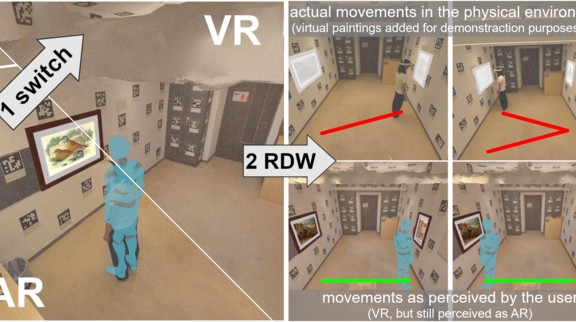News

Prof. Mira Mezini confirmed in the DFG Senate
The General Assembly of the German Research Foundation (DFG) elected Prof. Mira Mezini to the Senate of Germany's largest research funding organization for a second term of office at the DFG Annual Meeting in Hamburg. As a representative of TU Darmstadt on the ATHENE Board, she strengthens the representation of cybersecurity research in the central body of scientific self-administration.
read more
AirGuard extends protection with Google tracker - New research results on PETS 2025
The AirGuard-App for Android and iOS was developed a few years ago and offers protection against potential stalking. It scans the environment to detect trackers such as AirTags, SmartTags or other trackers and informs users of the potential danger of being followed. The app has now been expanded to include protection functions against the new Google trackers and has reached the milestone of 1.5 million downloads worldwide thanks to continuous further development.
read more
ATHENE research on perception manipulation in augmented reality honored at CHI 2025
ATHENE researchers presented their innovative research on “SwitchAR” at the renowned CHI Conference 2025 in Yokohama and received the Jury Honorable Mention Award. The technology, developed as part of the ATHENE project “XR-Guard - A Security Mechanism to Detect and Mitigate Perceptual Manipulations in Extended Reality” under the coordination of Prof. Jan Gugenheimer, enables the application of perceptual manipulations in augmented reality (AR) environments for the first time.
read more
Successful submission to the S&P
A paper co-authored by ATHENE scientists Dr. Nina Gerber and Dr. Alina Stoever, along with researchers from ETH Zurich, has been accepted for presentation at the prestigious IEEE Symposium on Security and Privacy (S&P). S&P is the foremost forum in which leading international experts from academia and industry can discuss the latest developments in computer security and electronic data protection.
read more
Study shows: AI systems generate manipulative design patterns without explicit instruction
In their latest study, ATHENE researchers, together with researchers from the University of Glasgow and Humboldt University in Berlin, show that AI applications such as ChatGPT, Gemini and Claude AI automatically integrate manipulative design patterns (dark patterns) into website code. These manipulative elements are implemented even for neutral queries, without the AI systems pointing out the legal or ethical implications.
read more
